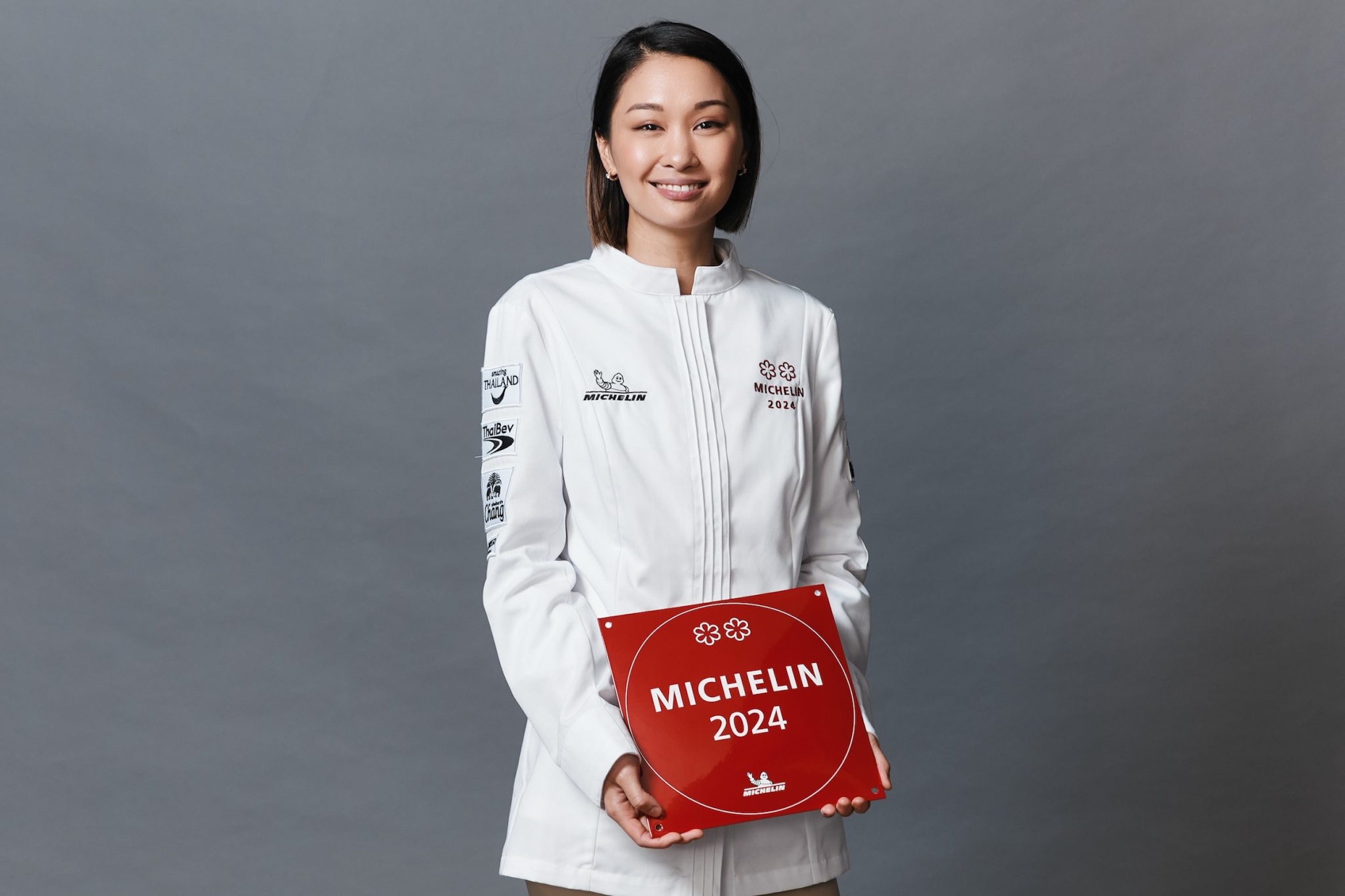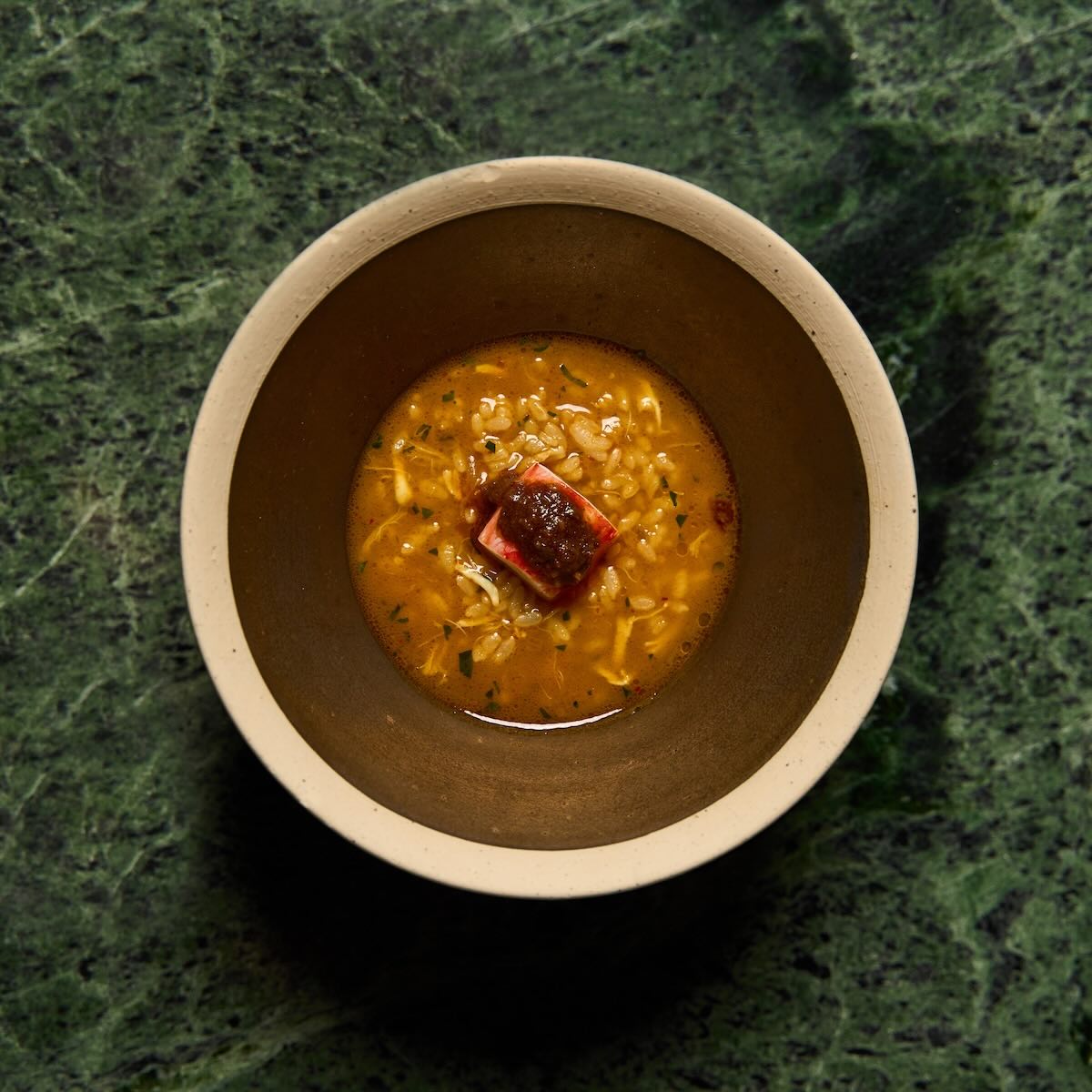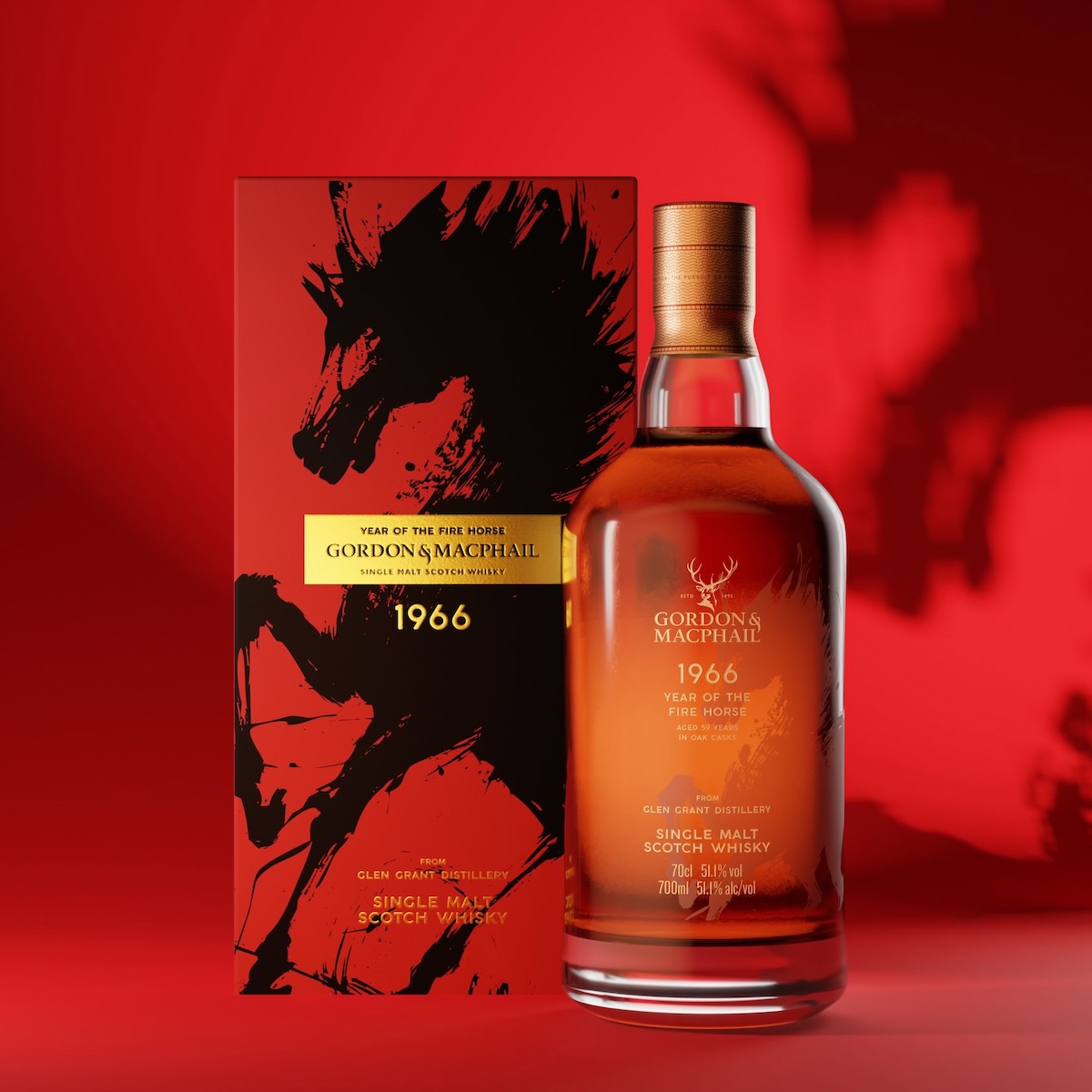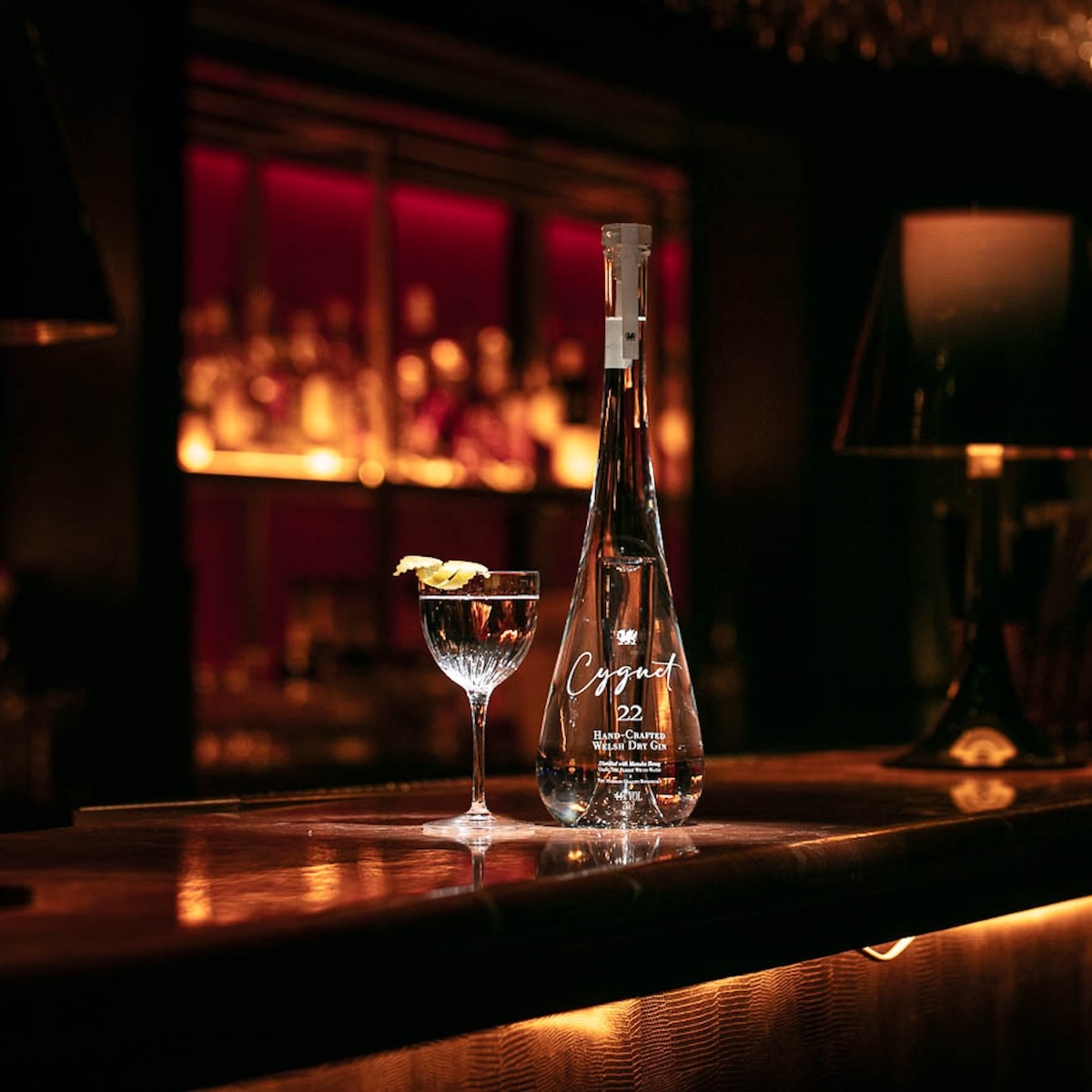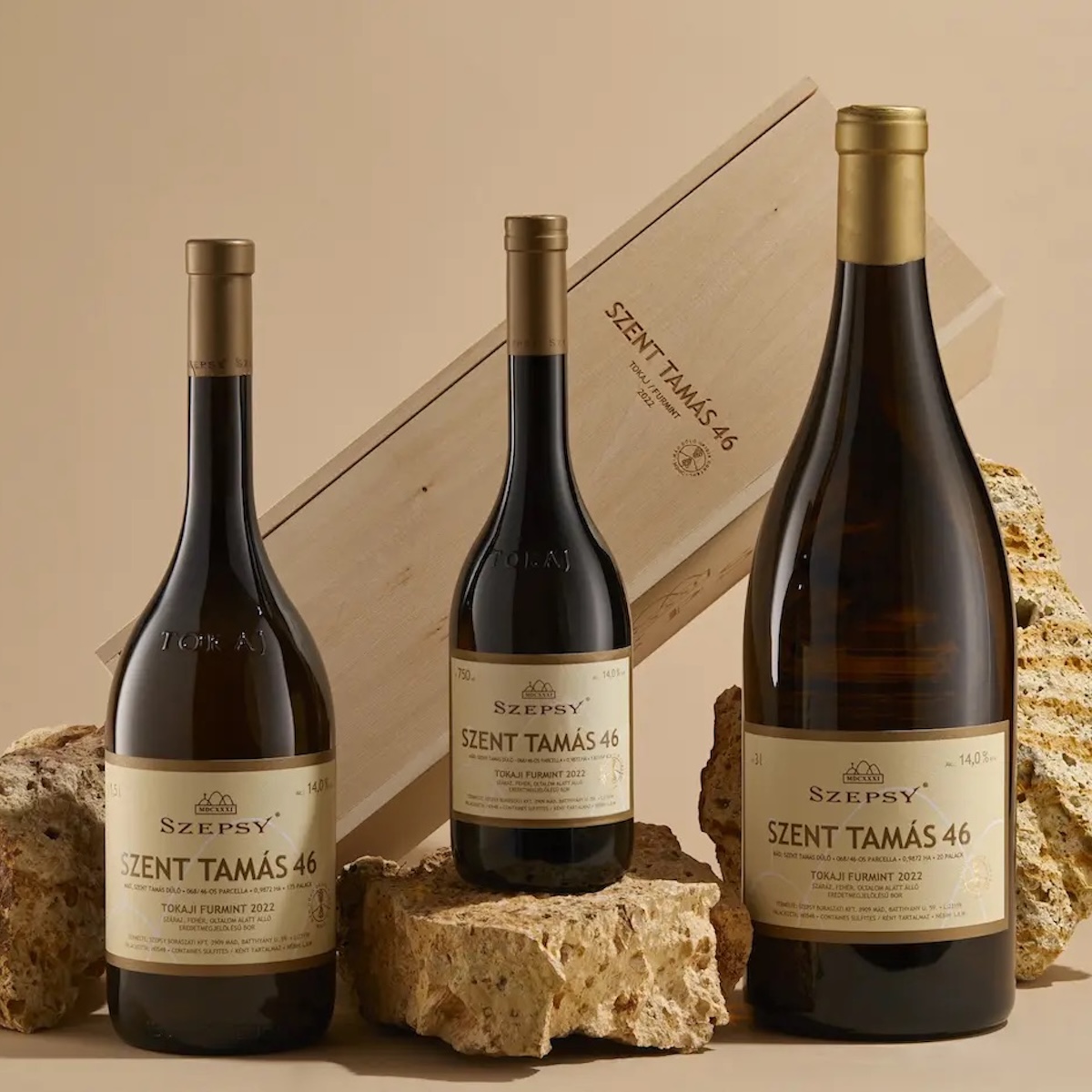This story is part of a series of features covering MGM x RR1HK Culinary Masters Macau 2024, hosted at MGM COTAI in Macau on 28–30 June 2024.
As the new-age face of contemporary Thai cuisine, chef Chudaree “Tam” Debhakam (who found fame as the winner of the immensely popular reality TV cooking show Top Chef Thailand) is in the thick of a media frenzy. She is having her moment in the sun as every major publication in her native country and around Asia has featured her with glowing references and portraiture—and deservedly so. Bringing zest, novelty, and enthusiasm to one of the most beloved cuisines in the world, she is reminding the world yet again of Thai excellence, bringing it piping hot and steaming to the table.
While many a young adult flounders before finding the chosen path, Debhakam set her goal posts early on, with her first steps as a graduate from the University of Nottingham in Food Science and Nutrition. A degree from the International Culinary Centre in New York followed suit, which led to working at the famed Jean-Georges, 11 Madison Park, and Blue Hill at Stone Barns. But it was back in her motherland where she found sure footing.
During a pan-country tour of Thailand, Debhakam noted the thin lines of distinction between cuisine and cultivation as she saw how farmers were the source of local food in each region, and how recipes and flavours altered along the length and breadth of a country famed for an incredible variety of delectable meals. Vegetarian or vegan? No problem. Pescatarian or meat-eating? No issues, either. Thailand’s expansive cuisine offers so much to so many that Debhakam could create her own ever-changing menu at Baan Tepa, which has elevated the fine art of contemporary Thai cuisine.
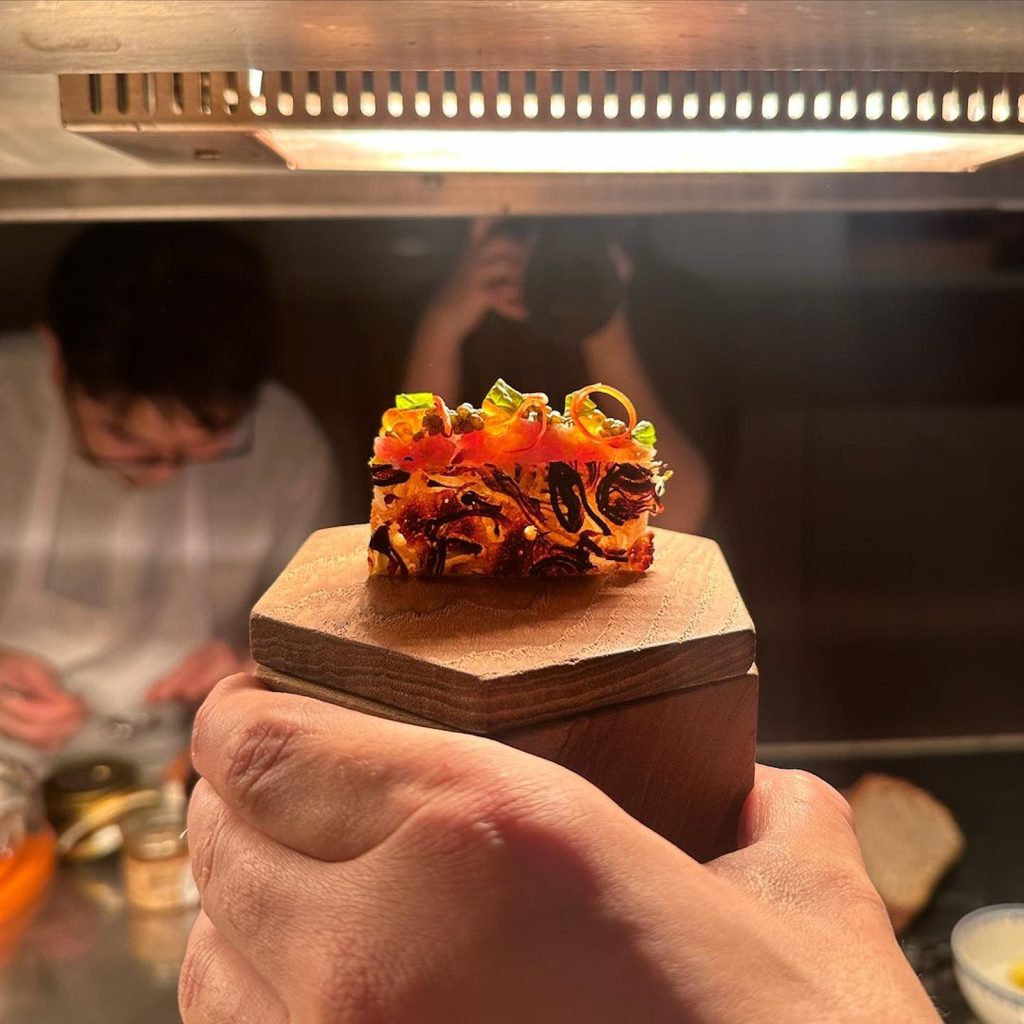
The menu—which might change by the time you read these words—has familiar starters and entrées like sticky rice cake and duck leg rice, which may seem like standard fare, except Debhakam’s take on it is with organic purple rice and her duck speciality is free-range confit Barbary duck from Khao Yai with organic Khao Mao rice. The foie gras banh mi, served on Hom Nil Surin rice baguette, homemade bacon, and Sriracha aioli stands out for its bravura novelty and refined curation. It is these original takes on the classic, without corrupting the source, that makes Debhakam such an obvious winner at culinary award shows.
There’s a particular moment at the Michelin Guide Thailand 2024 ceremony that stands out among those who were present. Debhakam was recognised with the Young Chef award, and soon after, she was conferred with two Michelin stars for Baan Tepa, and she had to hike back on stage to pick up the coveted title—the night was young and it was hers.
As part of the dream team of chefs for MGM x RR1HK Culinary Masters Macau 2024, Debhakam lands in Macau with the weight of great expectations on her shoulders as Thai contemporary cuisine is bound to be a favourite of many at the event, taking place at MGM COTAI from 28 to 30 June 2024. The chef in question says, “I’m very, very excited to meet the chefs as well as the guests and exchange knowledge and know-how. Fascinated to see how they prep versus how we prep!”
How did you feel at the Michelin award ceremony when you picked up the Young Chef Award and then won two Michelin stars—all within minutes?
It was a big surprise to the whole team and myself. We really did not expect that. We were just hoping to retain the one star, but to gain two was beyond our imagination. It is a great validation to the team, because we’ve been pushing, not knowing where we were going, but we wanted to do our best [for] every service. Every day that we go into work, we try to make sure that it’s the most memorable experience for all the guests that come that night. We were just taking it day by day, we didn’t really step back and look at the big picture. Honestly, we are all so proud, but it was a big surprise.
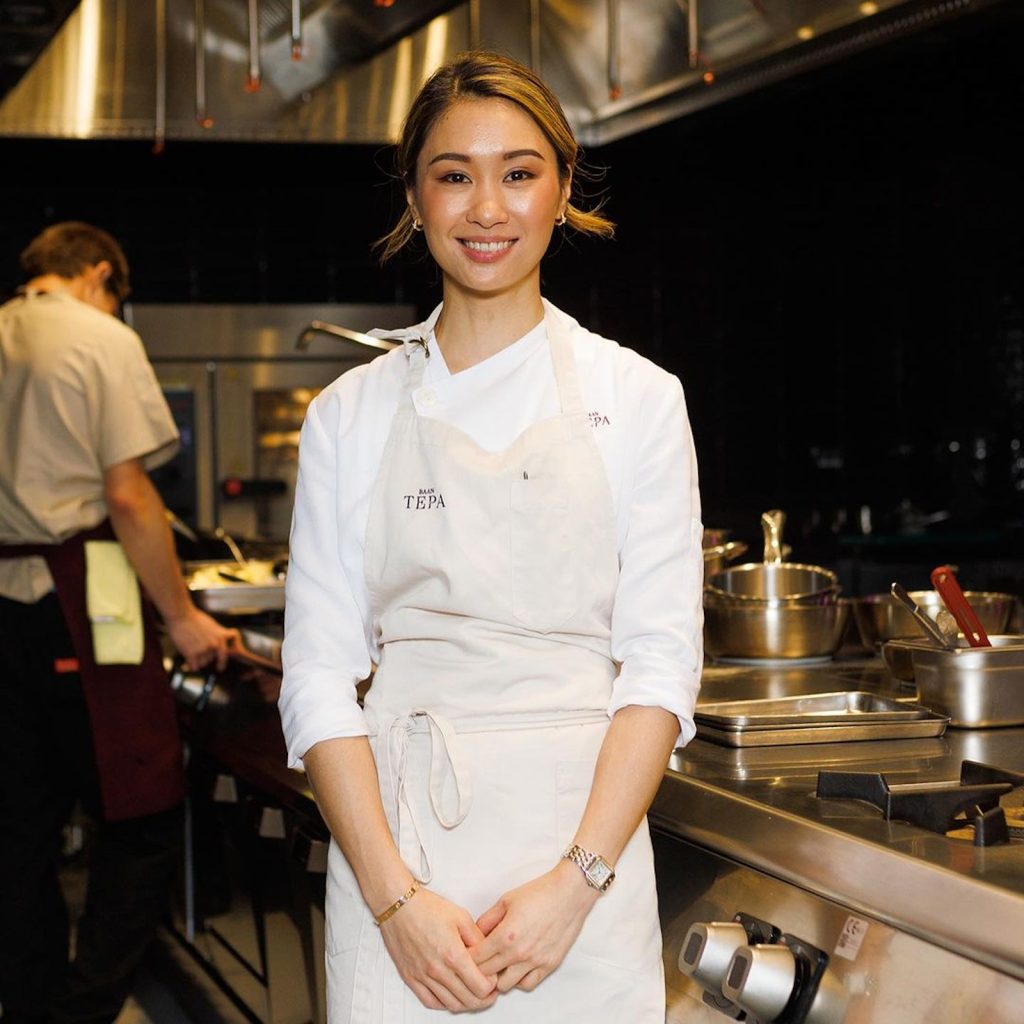
Is there now more pressure to keep up with your Michelin stars or are you a bit more relaxed having achieved so much, so soon?
I would be lying if I was saying that there’s no pressure that comes with it! With every reward that comes, you pay something back. Now, the expectations that we never really had put on ourselves before, we have to live up to that standard. People have an expectation of what a two-Michelin-starred restaurant should be like, should operate like. It can be tricky; it’s a lot of pressure. But I say to my team, basically, we have been doing things the way that we’ve been since day one; we can’t suddenly change what we do just based on the awards or the recognition that we get. We still have to deliver the same service [and experience] that is Baan Tepa. We’re not a traditional restaurant by any means. We’re a very young group of people, and our vision is a little bit different from other more traditional two-Michelin-starred restaurants.
You’ve mentioned the importance of quality produce to enhance the dishes. Where do you source your ingredients? What are the specialities to your region?
We source from ingredients from all over Thailand. We visit the producers through tour trips. Each season, it really depends on what is available. Which regions we want to highlight is just based on what the farmers have. They’ll communicate [with] us that this is the season for this particular wild fruit or this particular rice that’s harvested once a year. Recently, we’ve been trying to showcase rice throughout the menu, because it’s such a staple in Thai cuisine. We want to show how diverse and how many uses there are to rice; we make pasta, noodles, bread, ice creams, desserts, all from rice, to showcase that it’s a versatile ingredient with different varieties that give different flavours and aromas.
Thai food is a favourite of many, but what is your favourite type of cuisine to eat?
It’s got to be Thai food, right? It’s so nostalgic for me, but I’m honestly such a simpleton when it comes to my own food. I would just eat basic kapow, or just fried rice and a soup and a curry. Salads are probably my favourite, like Thai yum nua, or a nice salad with palm sugar, lime juice, and fish sauce. I also love Japanese food and Italian.
What advice would you give to young chefs or culinary students who aspire to achieve Michelin-starred success like yours?
For young cooks and aspiring chefs, I always talk about perseverance and discipline, because growing up and going up the ranks in a kitchen not easy. It really does take a lot of willpower, and sticking with it is tough—you’re going to meet a lot of people, and the environment in the kitchen is not always so forgiving and the pressure is high, and the mindset of some cooks needs to be strong to persevere and to grow. In a kitchen, when you’re operating under high pressure, in a high-stress environment, you see all of a person; it’s for them to figure out if this is what they really want to do. Disciple, perseverance, and practice. It’s just like any other skill—the more you practice, the better you become. Working in kitchens, you can drown in the actual work and the prep, but don’t lose sight of what the big picture is, what you want to do with food, or how food can still make you happy. It’s very easy to for a young cook to get burned out, because they lose sight of the big picture.
What are you looking forward to doing in Macau, aside from Culinary Masters?
I’m looking forward to meeting all the chefs and all the guests as well. I think everyone in the industry will be there, and it’s going to be a big party, a lot of networking. I’m just excited to try other restaurants. The last time I was in Macau, I didn’t get a chance to explore the city, so I plan to go around and try every type of food.
What message or experience do you hope guests will take away after immersing themselves in the multi-course Silk Road feast you and the other five chefs have created?
We’re representing Thailand and I want to put Thai food on the centre stage, and be able to stand next to other cuisines. And I want to be proud of the cuisine that we present. I would love to have people talk about Thai food in a different way. A lot of people think about it as an easy takeaway [food], more casual, but Thai food can be on a very high level.
What excites you most about the opportunity to work alongside chefs from other Silk Road cultural backgrounds for this unique dining experience?
Every collaboration that I do, I’m just so excited to exchange knowledge and to learn and to see what other chefs are doing, because sometimes you can get so bogged down in your own kitchen. This is a great opportunity for me and my team to see what other chefs are bringing, what food they’re cooking, and their flavours.
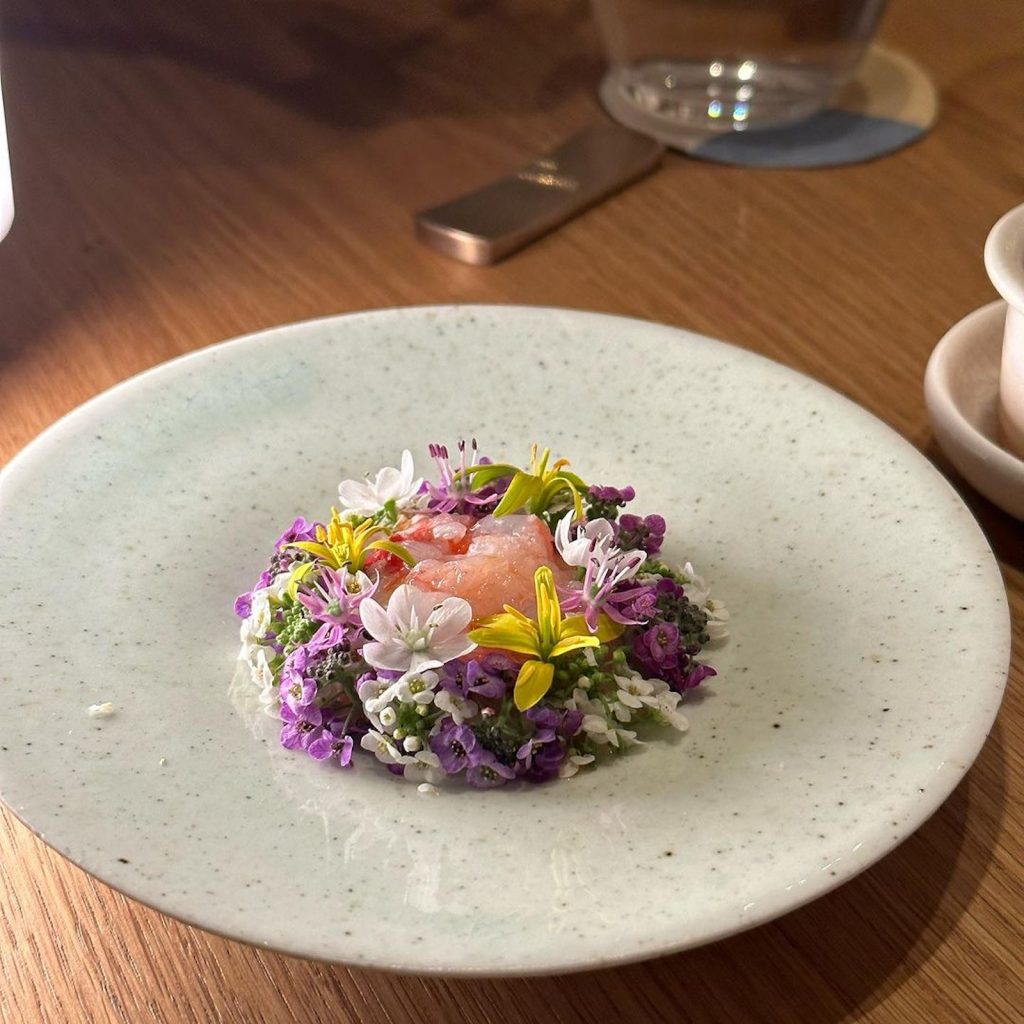
As a Thai chef, in what ways will you aim to strike a balance between honouring Thai culinary heritage and innovating with Silk Road-inspired elements?
We are very grounded in the way that we want to know about the roots; we feel it’s actually crucial for us to reinvent or recreate dishes and inject creativity inside. But to do that, you must know the traditions of your cuisine and the culture. Otherwise, I think it would be quite a messy job. We do a lot of reading, and we do a lot of research into what the traditional cuisine is, what dishes are, and why they’re eating this at a specific time of year, or why they’re eating that with this other condiment.
There’s always reasoning behind these dishes. So we do the research first, and then we try to not make a dish better, but add our influences and experiences, whether it be a more modern cooking technique, or a way to thicken a sauce, or change the texture of something. It is a balance between skill, craft, and creativity based on what the traditions are.
What special thing will you bring to the event that’s different from the menus at Baan Tepa—or is it an extension of it?
Every dish is going to be completely new—[something] we’ve never done before on the menu.
When curating a menu for Culinary Masters, what key factors do you consider? How do you balance seasonal dishes, audience preferences, and coordination with the other chefs’ offerings?
We are trying to compare it directly with one of the dishes that we’re very proud of on the menu, and it’s about the river prawn. But at MGM x RR1HK Culinary Masters Macau 2024, we really want to showcase something a little extra, so we are using blue lobster.
If you could travel back in time, which Silk Road destination would you most want to cook in?
Uzbekistan. Why not? I have no idea what kind of food they have.
Thai spice blend you couldn’t live without in the kitchen?
A northern Thai spice blend.
The most important Thai culinary tradition you’re honouring.
The making of a curry.
Three words to describe your Silk Road-inspired menu?
Traditional, crafted, and creative.
What was the most surprising Silk Road ingredient you discovered during your menu development?
How far back you can trace the usage of spices. There are a lot of similarities with Indian curries, especially the use of dry spices, and there’s a lot of crossover, too. Think about the massaman curry, or other curries from the south. We have influences from Indian traders. I love, love spices, but I’m not great with chilli spices, but I don’t mind other aromatic spices.
For more delicious details, visit rr1hongkong.com/culinary-masters-2024.
All images courtesy of Chudaree “Tam” Debhakam via Instagram.





